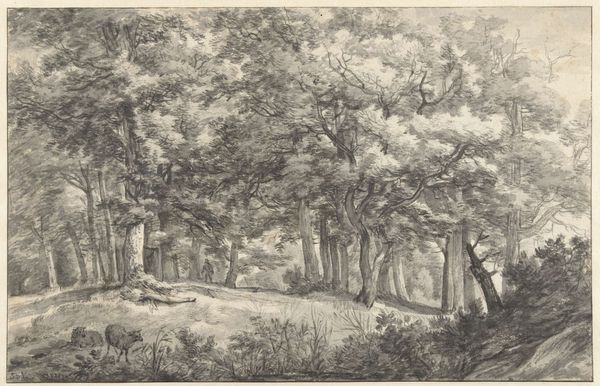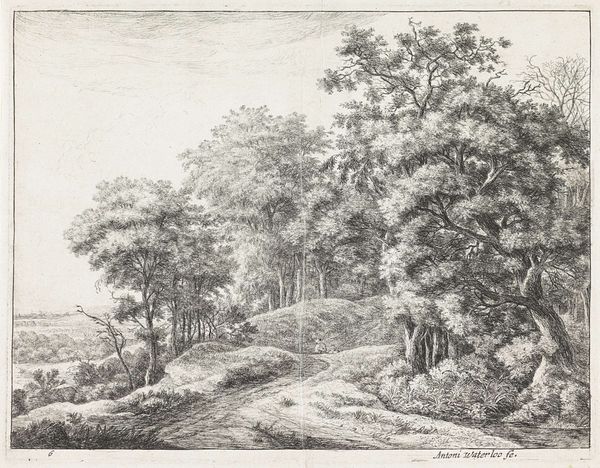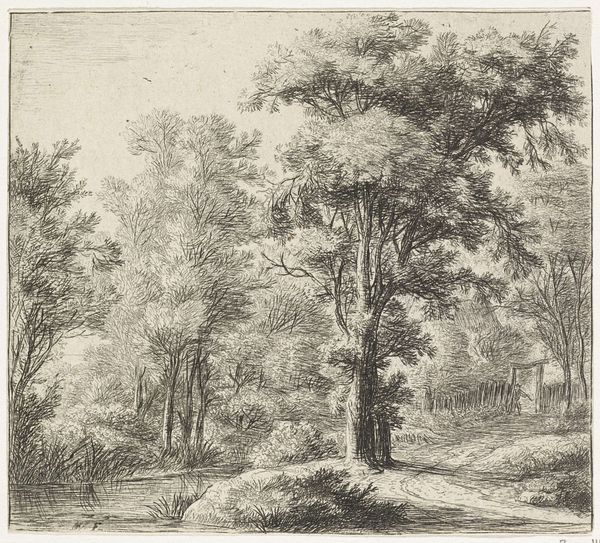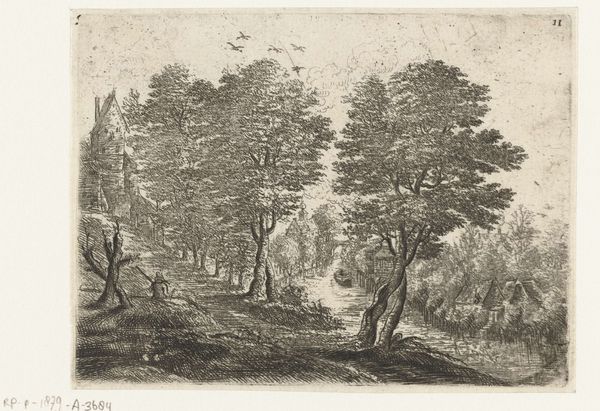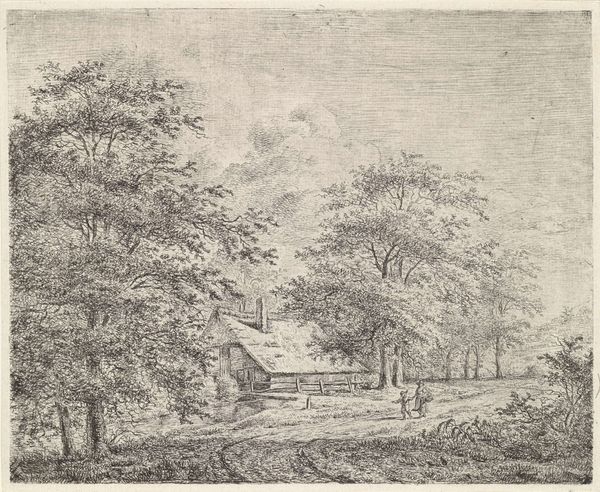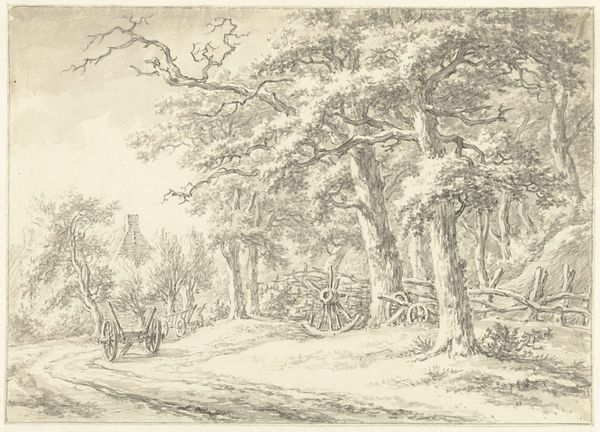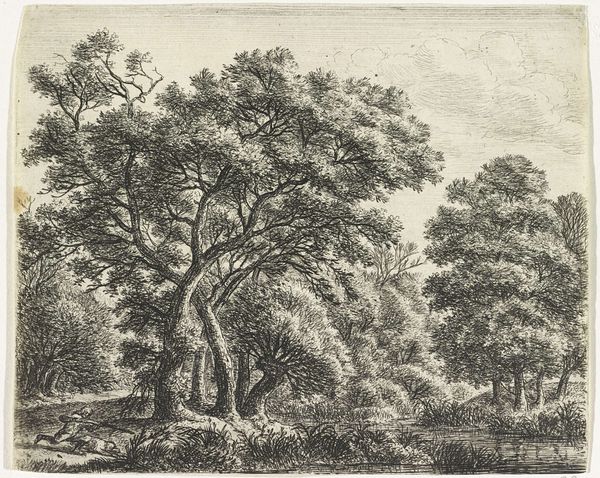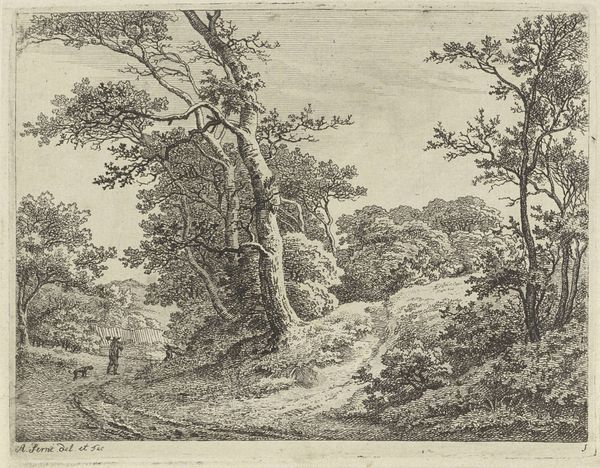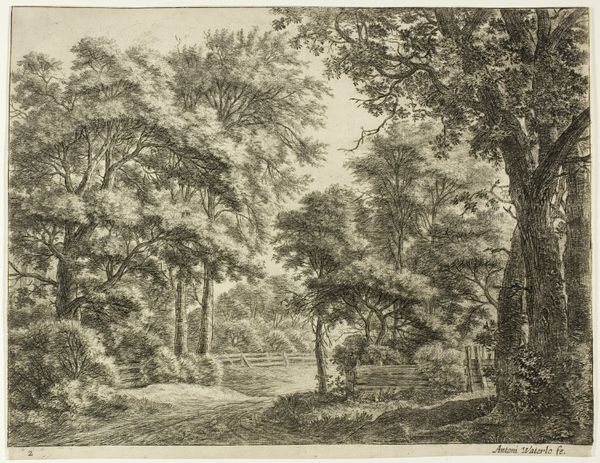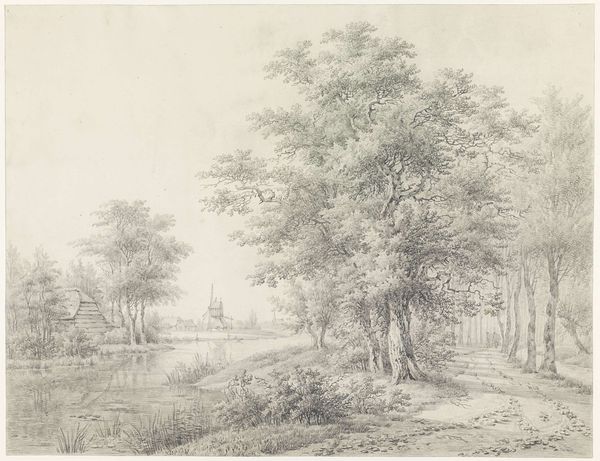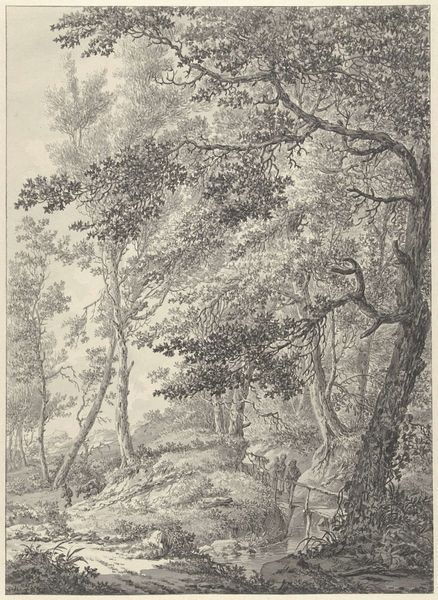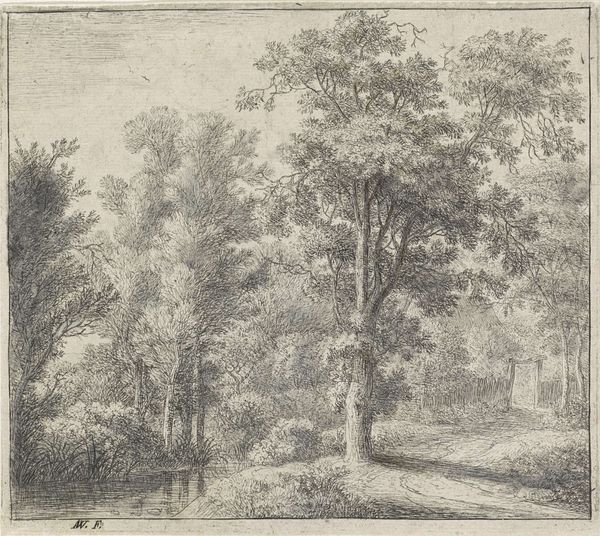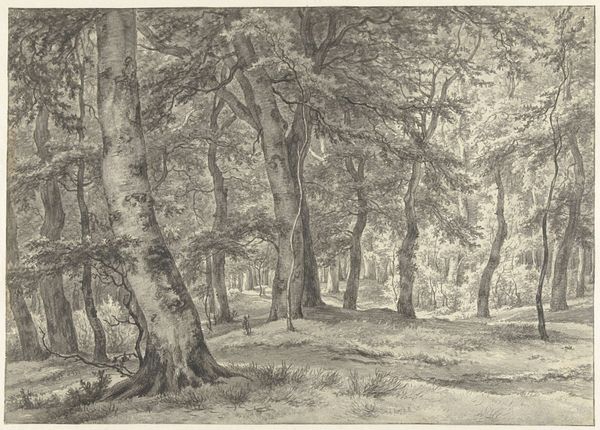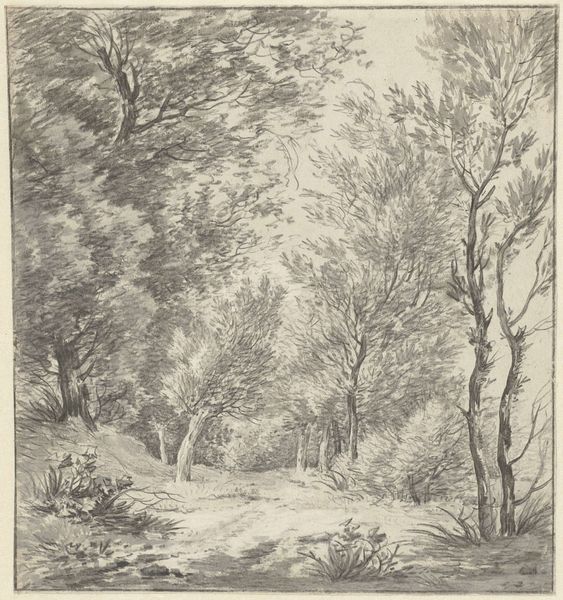
drawing, pencil
#
pencil drawn
#
drawing
#
pencil sketch
#
landscape
#
pencil drawing
#
forest
#
romanticism
#
pencil
#
realism
Dimensions: height 363 mm, width 510 mm
Copyright: Rijks Museum: Open Domain
Editor: We're looking at "Bosgezicht," a pencil drawing, attributed to Engelbert Michaël Engelberts, dating roughly between 1783 and 1843. It strikes me as very detailed, almost photographic in its realism, despite being made solely with pencil. What aspects of its creation or context stand out to you? Curator: For me, the fascinating aspect lies in understanding *why* Engelberts chose pencil as his medium and the implications of that choice during this period. Pencil wasn’t always viewed as suitable for 'high art.' Examining its accessibility and portability helps us consider the democratization of art production. Was this a preparatory sketch, or a finished work intended for sale or private enjoyment? The labor involved in rendering such detail with pencil also demands consideration. Editor: That's a really interesting point – the choice of pencil itself as a statement. How would that democratisation have played out? Curator: Think about the rise of industrial production making pencils more readily available. Simultaneously, you see a growing middle class with leisure time and disposable income, fueling the market for landscape art. Pencil sketches become accessible to amateurs, blurring the lines between professional and hobbyist artistic practices. Are we looking at a reflection of a shifting social landscape in the artwork’s materiality? What do you think? Editor: So it's less about the inherent artistic skill, but rather what the very act of picking up a pencil might have signified in that moment. The subject matter too… forests becoming places of leisure and artistic engagement, as well as sources of timber. It changes how you see the artwork. Curator: Precisely! The materials themselves and their mode of production become integral to understanding the piece's meaning and social context. It forces us to question traditional notions of artistic genius and instead focus on the socio-economic conditions that enabled this work to exist. Editor: I never considered landscape art through this lens of materials and class. Thanks, that's a really thought-provoking perspective!
Comments
No comments
Be the first to comment and join the conversation on the ultimate creative platform.
